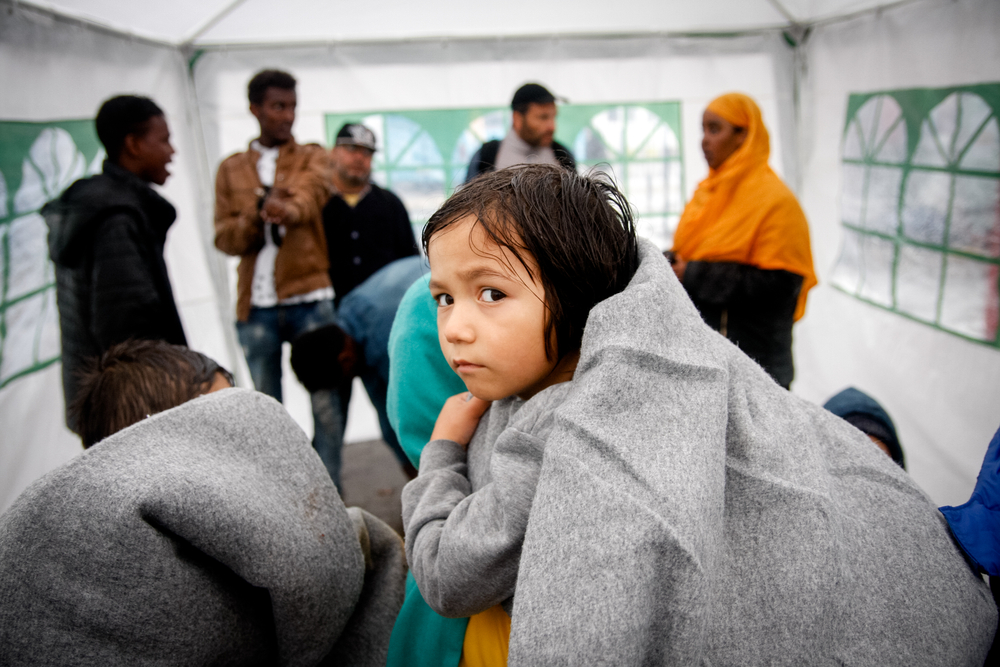Did you ever have the experience of being a child in a store with your parent, and then wandering into another aisle and losing them? Each second of being lost feels like an eternity, as your heart beats faster and panic begins to set in. Thankfully, these stories usually end quickly and happily, with your parent finding you or a store employee helping to reunite you within a matter of minutes.
Despite its brevity, many people who have had this experience can recall it vividly, even decades later, because it was scary and emotional. But for hundreds of children, this experience doesn’t just last for a few minutes, it can last for weeks or months, causing significant emotional and psychological trauma.
The Department of Homeland Security has implemented a policy of separating children from their mothers and fathers when they arrive at the US/Mexico border, in an effort to deter migration. The United States Conference of Catholic Bishops (USCCB) has spoken strongly against this policy, with Most Reverend Joe S. Vásquez, Bishop of Austin and Chairman of the USCCB’s Committee on Migration stating:
“Rupturing the bond between parent and child causes scientifically-proven trauma that often leads to irreparable emotional scarring. Accordingly, children should always be placed in the least restrictive setting: a safe, family environment, ideally with their own families.”
Fr. Tim Graff, Director of the Office of Social Concerns for the Archdiocese of Newark, recently stopped by Morning Air® to discuss the border policy and the effect it has on children.
“How do we deal with children of trauma from migration?” Fr. Graff asked. “We have school psychologists on it, we have social workers on it because it’s a whole new field, almost, these children dealing with so much trauma.”
Fr. Graff explained how the trauma doesn’t start at the border, as the journey to America can be especially traumatic for children, but that this new policy compounds the trauma these children face.
“The children are dealing with trauma already coming up,” he said. “And then the trauma of being in a new culture, and then the trauma of separation. So they are going through a triple trauma all at once. And these are the most vulnerable of people, our children. Think of how vulnerable your own children are, but picture them going through these experiences.”
In addition to the trauma that this policy inflicts on families, it shows the result of dehumanizing immigrants. And history tells us that dehumanizing entire groups of people can pave the way for such evil acts as slavery, the holocaust, and abortion.
“My own cardinal, Joseph Tobin, was the first bishop up to comment on [the new border policy] and he said that the new policy was consistent with ‘cardiosclerosis’ – a hardening of the American heart, said Fr. Graff. “We have given permission to hate. We have given permission to judge in an unhealthy way. And somehow this has become OK. Somehow this has become a moral stance. And somehow we have forgotten love of God and love of neighbor.”
“The bishops are really speaking out on this as a moral issue,” he continued. “This is something we need to pay attention to, because these are our brothers and sister in Christ. These are not numbers, these are not statistics, these are people. And the more we hear their stories, and the more we hear what they go through, the more it is able to touch our own heart, no matter what we think in terms of immigration policy.”
Listen to the full conversation with Fr. Tim Graff below:
Morning Air can be heard weekdays from 6:00 – 9:00 a.m. Eastern/3:00 – 6:00 a.m. Pacific on Relevant Radio® and the Relevant Radio App.


